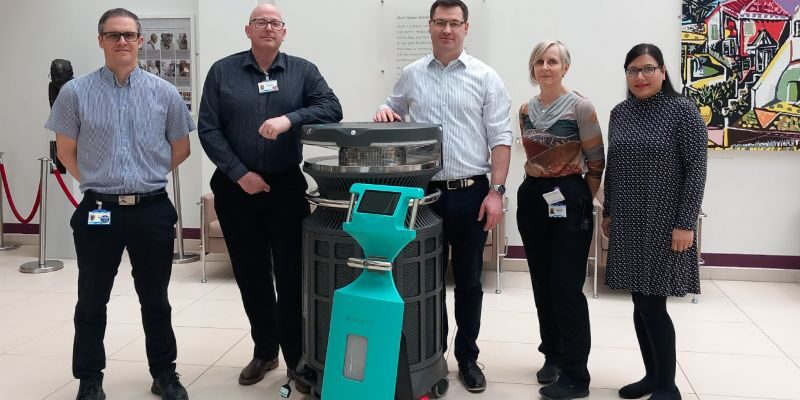
The Trust has recently invested in innovative, next-generation hydrogen peroxide vapour (HPV) decontamination equipment.
ProXcide® is the latest HPV decontamination technology developed by Inivos and can be used to supplement existing cleaning services. The HPV technology can reduce viruses and bacteria to safe, non-infective levels in under two hours, which can help minimise the possibility of associated healthcare infections (HCAIs).
Fourteen new devices were delivered to the St James’s site, where they will be used in high risk areas, including intensive care units, neonatal, operating theatres and A&E. They can also be used in high footfall areas and to decontaminate hospital equipment.
Dean Legg, Head of Facilities at LTHT, said:
We know that the highest level of cleanliness creates the foundation for high-quality patient care, facilitates patient recovery and contributes towards the prevention, control and spread of HCAI. The ProXcide will not only enhance the cleaning service, it is also remote controlled to ensure operator safety and provides a validation report at the end of each cycle. This means we can be confident that decontaminated areas are safe for patients
With built-in intelligent software, ProXcide does not require any operator programming and automatically adjusts every decontamination process, taking into consideration environmental factors such as temperature, humidity and absorbency. At the end of each cycle, the devices deactivate and remove the HPV from the environment, making the area safe for staff and patients.
Ben Kilbey, Inivos Regional Manager, said
Inivos have had a longstanding relationship with Leeds Teaching Hospitals for several years in utilising HPV decontamination technology, and we are delighted to continue this with the investment in a new generation, cutting-edge technology that delivers consistent, validated processes, shorter cycle times and reporting functionality that helps prevent the risk of Healthcare Acquired Infections (HCAIs) and ensure patient safety